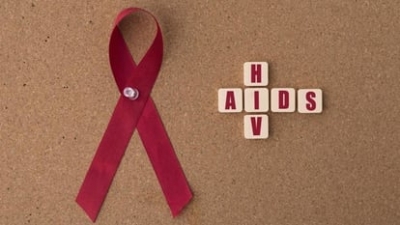New Delhi, April 17 (IANS) Children, especially boys, born to women with HIV infection have an increased risk of immune abnormalities, including a high risk of death, finds a study.
This is because of exposure to maternal HIV viruses in the blood, immune dysfunction, and co-infections during pregnancy revealed by the team from the Queen Mary University of London in the UK.
The study included 726 pregnant women with HIV, and compared blood samples between infants who were HIV-exposed and HIV-unexposed in rural Zimbabwe. The findings showed that the immune development of HIV-exposed babies — and especially boys — was different in those who had been exposed.
Mortality rates in this group were 41 per cent higher than in infants not exposed to HIV.
“Collectively, the findings show how the skewed immune milieu of women with HIV in pregnancy — characterised by inflammation, immune dysfunction, and co-infections — shapes immune development in their offspring,” said Dr. Ceri Evans, Clinical Lecturer in Paediatric Infectious Diseases at the University of Liverpool.
Even among the infants who survived and remained HIV-free, the team found impaired growth and development. Worryingly, this is “despite high coverage of maternal antiretroviral therapy (ART) and uptake of exclusive breastfeeding”, the researchers said, in the paper published in the journal Nature Communications. Besides systemic inflammation among women with HIV, as measured by C-reactive protein (CRP) in the blood, infection with cytomegalovirus (CMV) — a co-factor in HIV disease progression — was also found to be independently associated with infant mortality, as well as impacting on the development of the child’s immune system, the researchers explained.
“Inflammation, as indicated by CRP, is inexpensive and simple to measure, offering the immediate opportunity for antenatal point-of-care testing to be used to identify those most at risk of infant mortality, with more support provided for high-risk pregnancies,” Evans said.
–IANS
rvt/pgh


Comments are closed.